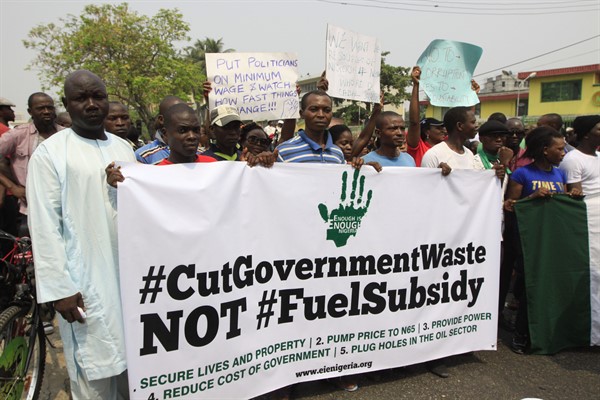Even before Russia’s invasion of Ukraine pushed the price of crude oil above $100 a barrel for the first time since 2014, global oil prices had been on the rise for several months. After the pandemic-induced slump, the spike in prices is expected to create a boon for oil-producing countries. But for Nigeria, Africa’s largest oil producer and the holder of the 10th-largest proven oil reserves in the world, higher prices will be a mixed blessing at best. In fact, they might not provide a financial windfall at all, due to the country’s diminished oil production capacity, large-scale corruption in the oil sector and a costly oil subsidy regime that is eating into revenues from rising prices.
For an oil-producing country like Nigeria, soaring prices should result in more revenues to fill government coffers, not least at a time when Western sanctions and logistical disruptions have choked off Russian supplies from the global market. And higher oil prices should be an especially welcome development for Abuja. In 2020, crude oil sales made up a third of the federal government’s budget revenue and a whopping 90 percent of its export earnings. With European governments in particular seeking alternatives to Russian supplies in undersourced frontier markets in Africa, Nigeria ostensibly stands to gain from increased oil sales.
But to say that Nigeria is unable to rise to the occasion would be an understatement. To begin with, Nigeria is already underperforming on its quota of 1.8 million barrels per day set by OPEC. Oil production fell to a low of 1.26 million barrels per day last month, a considerable drop from the prepandemic average of 1.7 million, to say nothing of the daily average of approximately 2.5 million barrels a decade ago.

